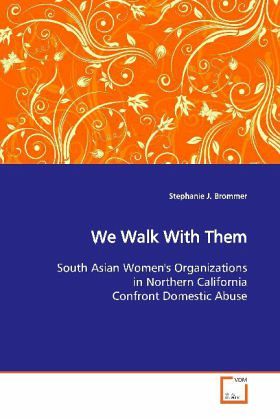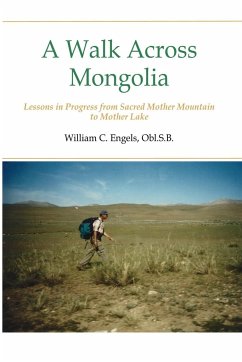
We Walk With Them
South Asian Women's Organizations in Northern California Confront Domestic Abuse
Versandkostenfrei!
Versandfertig in 6-10 Tagen
45,99 €
inkl. MwSt.

PAYBACK Punkte
23 °P sammeln!
When South Asian women came together in Northern California to help immigrant women who experience domestic abuse in a foreign culture, they faced some community enmity, hegemonic Western conceptualizations of domestic abuse, and restrictive American immigration law. These South Asian caregivers persevered by creating a social space for abused women and by recognizing the politics of culture through their caregiving models emphasizing fictive kin and empowerment. This book profiles three South Asian anti-domestic abuse organizations in Northern California at the turn of the 21st century, and, ...
When South Asian women came together in Northern
California to help immigrant women who experience
domestic abuse in a foreign culture, they faced some
community enmity, hegemonic Western
conceptualizations of domestic abuse, and
restrictive American immigration law. These South
Asian caregivers persevered by creating a social
space for abused women and by recognizing the
politics of culture through their caregiving models
emphasizing fictive kin and empowerment. This book
profiles three South Asian anti-domestic abuse
organizations in Northern California at the turn of
the 21st century, and, in so doing, investigates how
these non-profit agencies serve abused women and
reach out to the diasporic community for support,
focusing on culturally appropriate intervention,
fundraising and outreach activities, and legal
advocacy for abused immigrant women. By examining
the outreach and service provided by the
organizations, this research also explores how they
become a community for social change and kin-like
support, politicize tradition, and contest the
conventional notions of the gendered
organization of public and private life.
California to help immigrant women who experience
domestic abuse in a foreign culture, they faced some
community enmity, hegemonic Western
conceptualizations of domestic abuse, and
restrictive American immigration law. These South
Asian caregivers persevered by creating a social
space for abused women and by recognizing the
politics of culture through their caregiving models
emphasizing fictive kin and empowerment. This book
profiles three South Asian anti-domestic abuse
organizations in Northern California at the turn of
the 21st century, and, in so doing, investigates how
these non-profit agencies serve abused women and
reach out to the diasporic community for support,
focusing on culturally appropriate intervention,
fundraising and outreach activities, and legal
advocacy for abused immigrant women. By examining
the outreach and service provided by the
organizations, this research also explores how they
become a community for social change and kin-like
support, politicize tradition, and contest the
conventional notions of the gendered
organization of public and private life.












